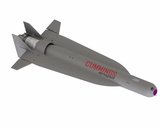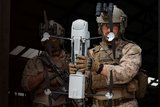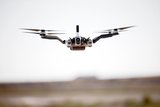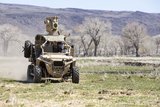Assured Autonomy programme launched
DARPA has launched a new programme called Assured Autonomy that aims to advance and enhance the adoption of autonomous systems in safety-critical defence applications.
The programme will work to improve the ways computing systems can learn and evolve to better manage variations in the environment and enhance the predictability of autonomous systems such as UGVs and UAS.
Despite technology advances that have led to the proliferation of unmanned systems, there remains a question about the degree of trust that can be put into these systems. Assuring systems operate safely and perform as expected is integral to trust, especially in a military context, and systems must also be designed so that operators can determine whether, once deployed, they are operating reliably, and, if not, that appropriate action can be taken.
Assured Autonomy aims to establish trustworthiness at the design stage and incorporate sufficient capabilities so that inevitable variations in operational trustworthiness can be measured and addressed appropriately.
Approaches such as the idea of ‘equivalent levels of safety’, which is based on the idea that an autonomous system must be at least as safe as a comparable human-in-the-loop system that it replaces, have not proved a practical way to assure the safety of autonomous systems due to the prohibitive number of trials that must be carried out to test it.
The alternative being suggested is that a goal-oriented approach is better suited for systems that learn, evolve, and encounter operational variations. In the course of Assured Autonomy programme, researchers will aim to develop tools that provide foundational evidence that a system can satisfy explicitly stated functional and safety goals, resulting in a measure of assurance that can also evolve with the system.
More from Uncrewed Vehicles
-
![Cummings Aerospace showcases Hellhound loitering munition designed for US Army’s LASSO programme (video)]()
Cummings Aerospace showcases Hellhound loitering munition designed for US Army’s LASSO programme (video)
Cummings Aerospace presented its turbojet-powered Hellhound loitering munition at SOF Week 2025, offering a man-portable solution aligned with the US Army’s LASSO requirements.
-
![SOF Week 2025: PDW unveils attritable FPV drone for SOF operations at scale]()
SOF Week 2025: PDW unveils attritable FPV drone for SOF operations at scale
PDW has revealed its Attritable Multirotor First Person View drone at SOF Week 2025, offering special operations forces a low-cost, rapidly deployable platform for strike and ISR missions, inspired by battlefield lessons from Ukraine.
-
![SOF Week 2025: Teledyne FLIR white paper provides guidance on reusable loitering munitions]()
SOF Week 2025: Teledyne FLIR white paper provides guidance on reusable loitering munitions
Teledyne FLIR is highlighting the emerging requirements for 'recoverable and re-usable' loitering munitions across the contemporary operating environment during this week’s SOF Week conference in Tampa, Florida.
-
![SOF Week 2025: Kraken Technology group debuts K3 Scout USV in North America]()
SOF Week 2025: Kraken Technology group debuts K3 Scout USV in North America
High-performance maritime industry player Kraken Technology Group, based in the UK, has used the SOF Week conference in Tampa, Florida this week to debut its K3 Scout uncrewed surface vessel (USV) to the North American market.
-
![Palladyne AI and Red Cat to demonstrate capabilities for autonomous drone swarms to the US military]()
Palladyne AI and Red Cat to demonstrate capabilities for autonomous drone swarms to the US military
Red Cat and Palladyne AI recently conducted a cross-platform collaborative flight involving three diverse heterogeneous drones.
-
Jammer resistant drone designs spark search for countermeasures
The Russia-Ukraine conflict has driven another stage of evolution for drones and the counter measures to defend against them.

























